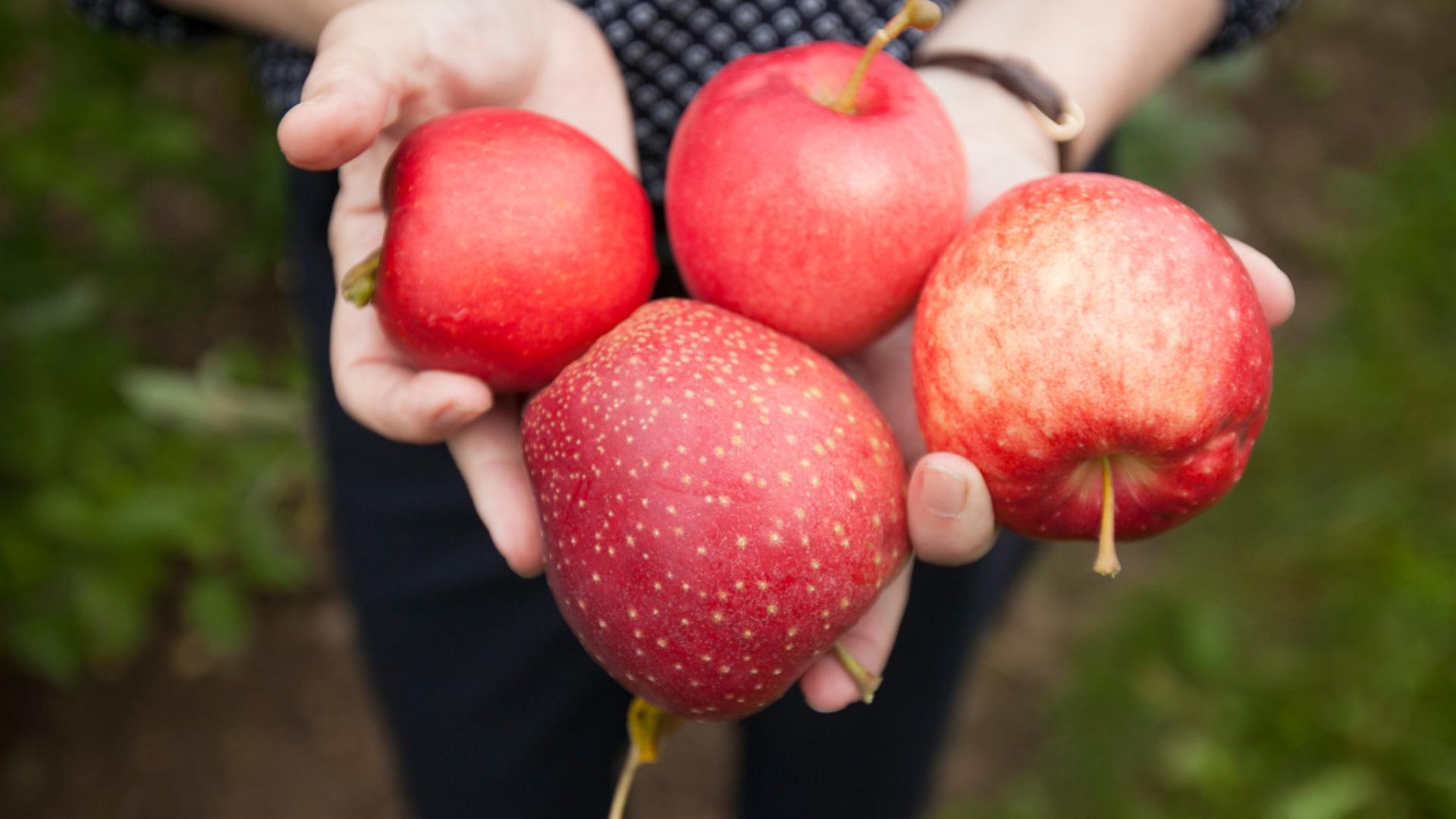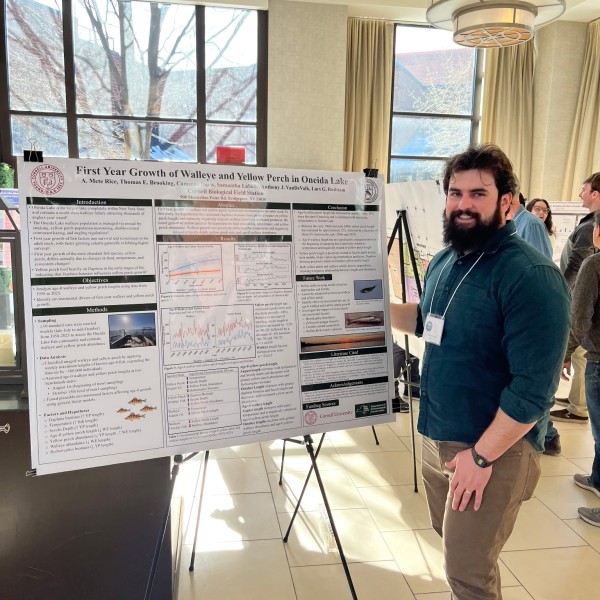How have Cornell AgriTech apple varieties impacted sales at Fowler Farms?
It's all about flavor and taste and Snapdragon and Ruby Frost really hit it out of the park. These Cornell AgriTech developed varieties have opened new markets for us. We’ve been able to ship to almost all 50 states. We also sell a fair amount of these varieties to those on the West Coast and in the Northwest, which is one of our largest competitor regions.
There’s also a marketing benefit to having Cornell apples. As soon as we tell customers an apple was developed by Cornell, they immediately say, “Oh, well it must be good!" There is definitely credibility associated with Cornell AgriTech developed apples.
What makes a good apple?
What people want in a good apple is flavor. [Good apples] really need sugar, thin skin and a lot of juice. When someone bites into an apple and says, "Oh, wow," you know it’s the perfect combination of those factors. There's a lot of apple varieties out there, especially some of the newer ones that really deliver on taste. As apple growers, we have a lot of competition in the produce aisle with berries, grapes and other fruit. It’s really important that Cornell AgriTech help us up our game with apple varieties that present that "wow" factor.






